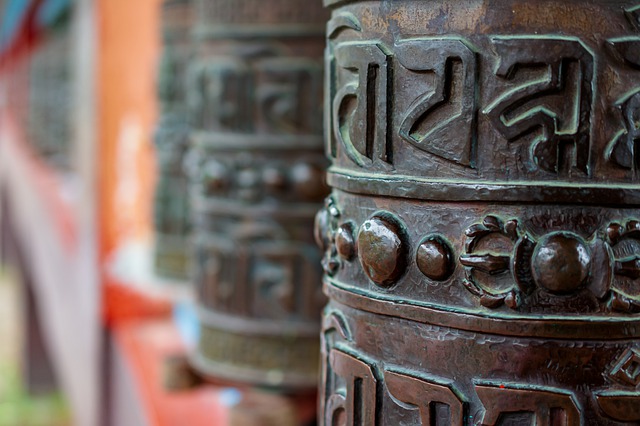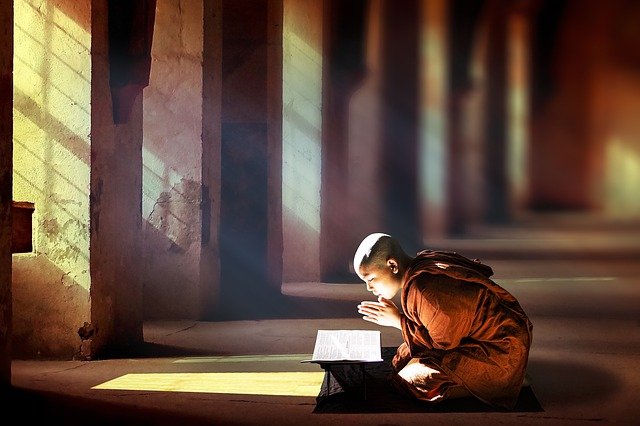In Buddhism, the teachings of the Buddha are to help us to overcome or release suffering. To reduce suffering, we need to learn renunciation or nekkhama in the Pali language. Developing the heart of renunciation is one of the ten virtues or paramis to be cultivated by Buddhist practitioners. We talked about the virtue of giving and the virtue of morality. The third virtue is nekkhamma.
What is Nekkhamma?
The word renunciation sounds terrifying to most people. It sounds like not getting something that you actually want. Or it feels like you have to let go of something you want. In the context of Buddhism, renunciation has a different meaning. Nekkhama actually means letting go.
We seek world satisfaction in external things. If we make our happiness dependent on external material things, we create an attachment. This attachment is a kind of desire that cannot be satisfied. As soon as you get something you have wanted for a long time, you are already thinking of getting more.
The misery of wanting
Wanting is not letting go. Many years ago, John D. Rockefeller, an American magnate and the wealthiest person of all time, was asked how much money is enough. He paused to think for a moment and replied, “just a little more.” His answer showed us that satisfaction does not last long.
Our wanting happiness by accumulating material things makes us like a hamster running in a wheel with no end in sight. When we reach the end of our lives, our accumulated possessions cause us to worry because we cannot let go of them. This is misery. No one has ever experienced happiness or joy as a result.
How to practice nekkhamma?
Some people think they have to completely renounce possessions, family, and friends to practice renunciation. This is not true. Although we see monks and nuns withdraw from worldly life, lay people who live in the world can practice nekhamma too. Letting go is not about just living a simpler life.
It is not a problem to have a house, a car, or a partner for you to feel happy or to enjoy your comforts. It only becomes a problem when you cannot live without all that. If you are attached or dependent on them, there is suffering. Without these possessions, you cannot be happy. This attachment is what makes it a problem.
As Antoine de Saint-Exupéry quotes in The Little Prince: “It is only in the heart that one can see rightly; what is essential is invisible to the eye.” Instead, we are only usually occupied with what our eyes see or hear. We react with desire or aversion. Not following these desires and dislikes when they appear in the mind is nekkhamma.
The Buddha on renunciation
Letting go is not just about outer things. We can also let go of negativity instead of acting on our opinions of people. We instead listen, even if we disagree. Letting go of this ‘I am right’ or ‘I am correct’ is also nekkhamma.
The Buddha said to his cousin and personal attendant Ananda, “Even before my full enlightenment when I was not yet fully enlightened, I was still on the path to enlightenment; I had the thought, ‘Something good is renunciation! Something good is seclusion!’ But my heart, Ananda, felt no urge to give up, did not tend to do so, did not consolidate itself in it, and found no liberation in it. Then Ananda, I asked myself, ‘What is the cause of this? What is the reason?’ And the thought came to me, ‘I have not yet recognized or considered often the dangers of attaching to the senses. I have not yet felt and obtained the blessing of non-attachment.’
“‘I, therefore said to myself, ‘If I now recognize and often consider the dangers of attachment to sensual pleasures, to feel and obtain the blessing of letting go, it may well be that my heart then feels an urge to give up, tend to it, consolidate itself and find liberation in it.’”
Only when we tend to the misery of attachment, do we see the wisdom of nekhamma and create a new perspective in our minds to know higher happiness.
Other ways of letting go
Instead of holding on, you can practice generosity to let go. You can also learn to let go of the eight world dhammas. They are:
- Gain and loss
- Praise and blame
- Like and dislike
- Joy and sorrow
Detach from these mind states as they are as transient as everything else that is material. They are constantly changing. Clinging to them causes suffering. This letting go is also nekhamma.
The extreme type of renunciation would be severe or harsh asceticism. That is not the way. Nekhamma is also to let go of extremes, to find the middle way. For example, Buddhist monastics depend on the four requisites for their practice: Robes, alms-food, accommodation, and medicine.
Encouragement for your practice
We have to recognize that we have very little time on earth. We have this precious human body now to help us develop nekhamma and see wisdom. Wisdom is striving to know the true nature of existence, which are characterised by anicca (impermanence), dukkha (stress), and anatta (not-self).
Take a close look at your body daily. It is not satisfying because it is transient, it gives us problems, and it also does not obey our wishes. Train your mind now to learn not to depend on external things for happiness. For one who is attached to sensual pleasures, the result is stress and suffering.



